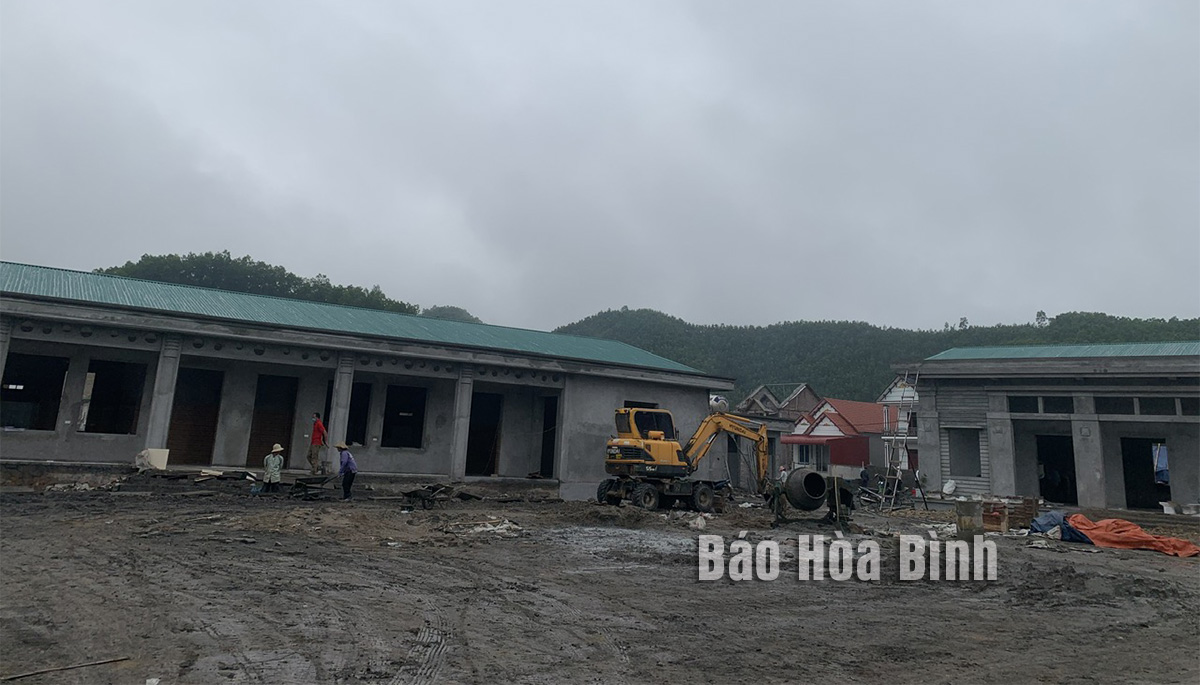
For many years, Hoa Binh province has effectively integrated ethnic policies into new-style rural building, contributing to giving facelift to, and improving the material and spiritual life of ethnic minority communities in the locality.
Roads in Tu Ly commune in Da Bac district
have been paved with concrete, helping facilitate trade and promote
socio-economic development.
Tu Ly commune in Da Bac district has experienced
rapid changes in recent years, with concrete roads, many new, spacious, and
modern houses, and various production models that rake in hundreds of millions
of dong each year.
These prove that the district has effectively
integrated programmes and projects, including the national target programmes on
new rural area building, sustainable poverty reduction and socio-economic
development in mountainous and ethnic minority-inhabited areas.
Dinh Cong Tuyen in Tinh hamlet, Tu Ly commune –
the owner of a mushroom farm that earns hundreds of millions of dong per year,
said that implementing the national target programmes, Da Bac district has
mobilsed many resources for infrastructure development; and put in place
programmes and projects in support of ethnic minority groups in production,
contributing to improving their material and spiritual life.
Da Bac is home to five ethnic groups, namely
Tay, Muong, Dao, Thai, and Kinh, with ethnic minorities accounting for 89.72%
of the local population.
According to Ban Kim Quy, Vice Chairman of the
district People's Committee, in the 2021-2025 period, the locality has implemented
the national target programme on socio-economic development in ethnic
minority-inhabited and mountainous areas with total funding of over 484 billion
VND (over 19.45 million USD).
As a result, 100% of roads to commune centres,
99% of roads to villages, 84% of village and hamlet roads, 79% of alley roads,
and 50% of main intra-field roads are concretised. The health station system is
relatively well-built, with 15 out of 17 communes meeting national health
standards.
Thanks to efforts by all-level Party Committees,
authorities, organisations and people, the socio-economic situation of ethnic
minority-inhabited areas in the province has seen improvements, and national
defense - security, and social order and safety have been maintained. The province’s agriculture sector reported that
since 2021, over 16 trillion VND has been mobilised for the national target
program on building new-style rural areas.
As of the end of June, 80 out of 129 communes in
Hoa Binh had met the new rural area criteria; 28 recognised as advanced
new-style rural communes, one model new-style rural commune, 75 model
residential areas, and 258 model gardens.
In late March, 29 labourers from Da Bac district were sent to work as seasonal farm workers in Buyeo county, Chungcheongnam province, the Republic of Korea (RoK). Upon arrival, they quickly settled into their jobs, enjoying good working conditions and benefits, with wages aligned with the terms of their signed contracts. The programme is now being expanded, with relevant departments and sectors actively seeking additional seasonal employment opportunities in various localities across the RoK.
Luong Son Industrial Park has invested in standardised wastewater and emissions treatment systems, enforced tight emission controls, reduced noise, dust, and solid waste, and expanded green spaces, contributing to protecting the environment and promoting sustainable development.
Hoa Binh police are collecting public feedback on amendments to the 2013 Constitution via the national identification app VNeID. This innovative approach marks a giant leap towards modernising grassroots democracy and enhancing transparency in public consultation.
A total public investment capital of 113 billion VND (over 4.3 million USD) was disbursed for a project to upgrade infrastructure and stabilise residents in the vicinity of the Da River reservoir between 2021 and the first quarter of 2025, giving a facelift to local rural areas and improving the quality of people's life.
Since the end of 2023-2024 academic year, Cu Yen Primary and Secondary School in Luong Son district has deployed e-study records for all of its 500 primary students, said the school principal Nguyen Thi Tuyen.
The Labour Federation of Hoa Binh city has actively worked to protect the rights and welfare of nearly 8,000 local workers and union members at 152 grassroots unions. Through regular dialogues, education campaigns, and welfare programmes, the federation has helped foster stable, progressive labour relations.



